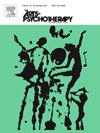Forcibly displaced adults' perspectives on change mechanisms after a resilience-building art therapy intervention
IF 1.5
3区 心理学
Q3 PSYCHOLOGY, CLINICAL
引用次数: 0
Abstract
Preventive interventions aimed at learning to cope with psychological stressors and building resilience could benefit most forcibly displaced persons (FDP). Limited research has been conducted to examine the usefulness of resilience-building art therapy for FDP. The aim of this exploratory study was to investigate the perspective of adult FDP on the process of change after a resilience-building art therapy intervention, i.e. to (a) identify the positive changes they experience, (b) the associated therapeutic factors, and (c) the mechanisms they believe to be responsible for these changes. An exploratory qualitive study using thematic analysis with descriptive quantitative data was conducted with 11 adult FDP who received an eight-session resilience-building group art therapy intervention. The participants identified three positive changes: (i) felt calmer, (ii) strengthened emotional skills and (iii) reinforced self. The results also highlight multiple therapeutic factors and some combinations of these, which could be possible change mechanisms. The authors suggest replicating the research to confirm and complete the results.
被迫流离失所的成年人在重建弹性的艺术治疗干预后对改变机制的看法
旨在学习应对心理压力和建立复原力的预防性干预措施可使大多数被迫流离失所者受益。已经进行了有限的研究来检验复原力重建艺术疗法对FDP的有用性。本探索性研究的目的是调查成年FDP在接受复原力艺术治疗干预后的变化过程,即:(a)确定他们经历的积极变化,(b)相关的治疗因素,(c)他们认为导致这些变化的机制。本研究采用专题分析和描述性定量数据对11名接受8期复原力建设团体艺术治疗干预的成年FDP进行了探索性定性研究。参与者确定了三个积极的变化:(1)感觉更平静,(2)加强了情绪技巧,(3)增强了自我。结果还强调了多种治疗因素和这些因素的一些组合,这可能是可能的改变机制。作者建议重复这项研究,以确认和完善结果。
本文章由计算机程序翻译,如有差异,请以英文原文为准。
求助全文
约1分钟内获得全文
求助全文
来源期刊

Arts in Psychotherapy
Multiple-
CiteScore
3.20
自引率
11.10%
发文量
66
期刊介绍:
The Arts in Psychotherapy is a dynamic, contemporary journal publishing evidence-based research, expert opinion, theoretical positions, and case material on a wide range of topics intersecting the fields of mental health and creative arts therapies. It is an international peer-reviewed journal publishing 5 issues annually. Papers are welcomed from researchers and practitioners in the fields of art, dance/movement, drama, music, and poetry psychotherapy, as well as expressive and creative arts therapy, neuroscience, psychiatry, education, allied health, and psychology that aim to engage high level theoretical concepts with the rigor of professional practice. The journal welcomes contributions that present new and emergent knowledge about the role of the arts in healthcare, and engage a critical discourse relevant to an international readership that can inform the development of new services and the refinement of existing policies and practices. There is no restriction on research methods and review papers are welcome. From time to time the journal publishes special issues on topics warranting a distinctive focus relevant to the stated goals and scope of the publication.
 求助内容:
求助内容: 应助结果提醒方式:
应助结果提醒方式:


